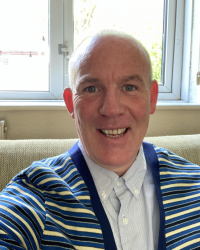How can family assist in recovery?
Addiction can have a damaging effect on many people. These people have to try to cope as best they can. Up against a baffling and harmful condition. The most common harm occurs within the family or significant others. In this article, I am exploring the help that can be given whilst in an inpatient facility. This help may also be possible within a counselling private practice.

Families have been let down, lied to, stolen off, shouted at... the list goes on. So how do they manage? What fuels their reasoning to continue to try to help? Unconditional love. Without this source of energy, the addict may die sooner than recovery makes it possible to survive.
The addict has exhausted all of their strength in maintaining their addiction. All focus and attention surrendered to the power of obsession and compulsion. Their tank is empty. Beaten and broken, in a very fragile state, both emotionally and physically. How do they summon any form of motivation? That’s where the family and or caregivers step in. Without that push or input, the addict is in the red - complete danger.
As an intervention, the push for inpatient treatment dawns upon the addict. All options are exhausted in the using world. The door of the treatment centre swings open, and in walks the shell of a person at the brink of breakdown, greeted with the warmth, hope and belief of the staff. As the door swings closed, the work now begins. Without the nudge inwards to the door, from the family and or caregivers, the thought of survival is very grim. The belief could be low from the outside, but within treatment, it has to be high. We have to believe in the capacity of every patient, having the opportunity, to change and recover.
Whilst in the facility, the therapy begins to flow. The peer group - the engine and the staff - the steering wheel. On the outside, the family may find some solace and a sense of relief. An invitation to the family to connect with the therapeutic process is delicate and must be carried out respectfully. And when administered, it can be highly effective. A family session is engulfed with unconditional love. It’s within the room. It’s extremely powerful, almost magical. But the timing and the selection of family is an important factor: who is the best person or persons to radiate an effective result in the session? A mum, dad, husband, wife and or child/children?
The answer to the respective choice lays in the narrative of the patient story. Who holds the source and the key to motivating change? Change is the component and tool for the addict. Without change, there is no recovery. Without change, the addiction lays dormant in treatment and awaits exiting. Sufficient change happens and is noticeable by a shift or movement in the cognition of the patient.
In a nutshell, they begin to think differently. They wake up to the reality of how they have lived. How they have hurt themselves and others. How, if they change their old ways and replace these ways with new behaviour, they can remain clean.
So the family or care system available plays a crucial part in providing the mechanism within the psyche to apply the change. Unconditional love is the essence of motivation. It’s the strong bond of the loved one, that creates the necessary movement. It’s remarkable to witness. Powerful to the recovering addict. Though ultimately, the true desire for change, comes from within the patient, accompanied by the assistance of a family therapeutic intervention. This is a huge craft constructed in treatment facilities. Sadly not all of them, though hopefully more will.
Families have been through a lot of pain on this journey. It seems cruel for them to have endured so much. As the patient recovers, so do the families. That’s why we call this “a family recovery.” Some have their own help, in their own repair work to themselves, seeking help from a counsellor to work through their anguish and suffering. Support groups are available too and can be really helpful for those not ready for therapy. If the family assist and help the addict with the guidance of professional support, it’s possible to find freedom in life again.

Find a therapist dealing with Addiction
All therapists are verified professionals



